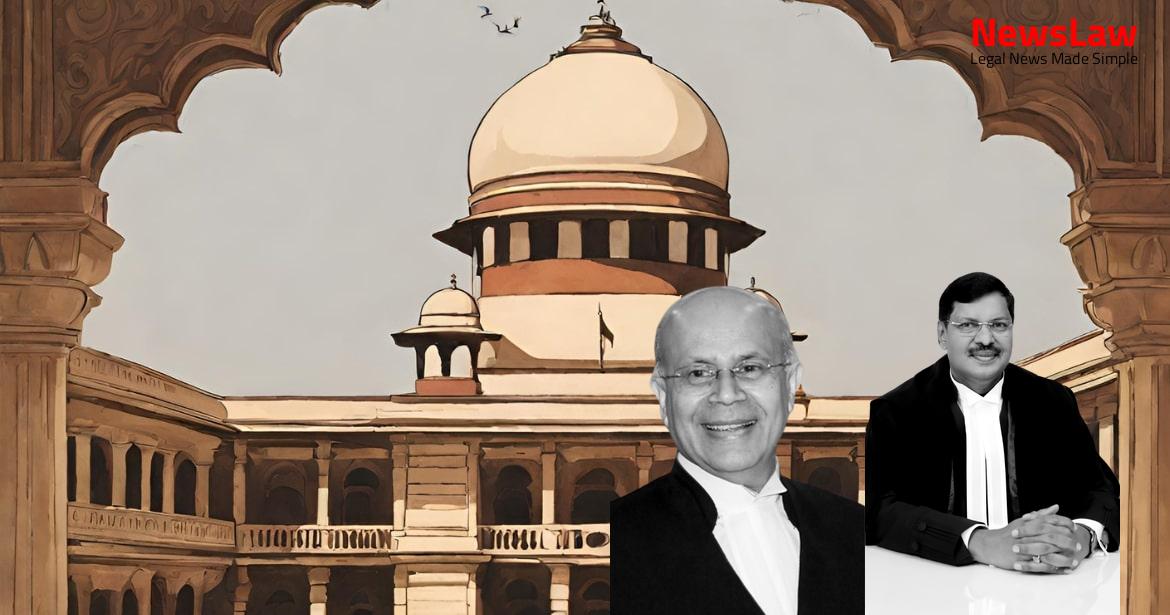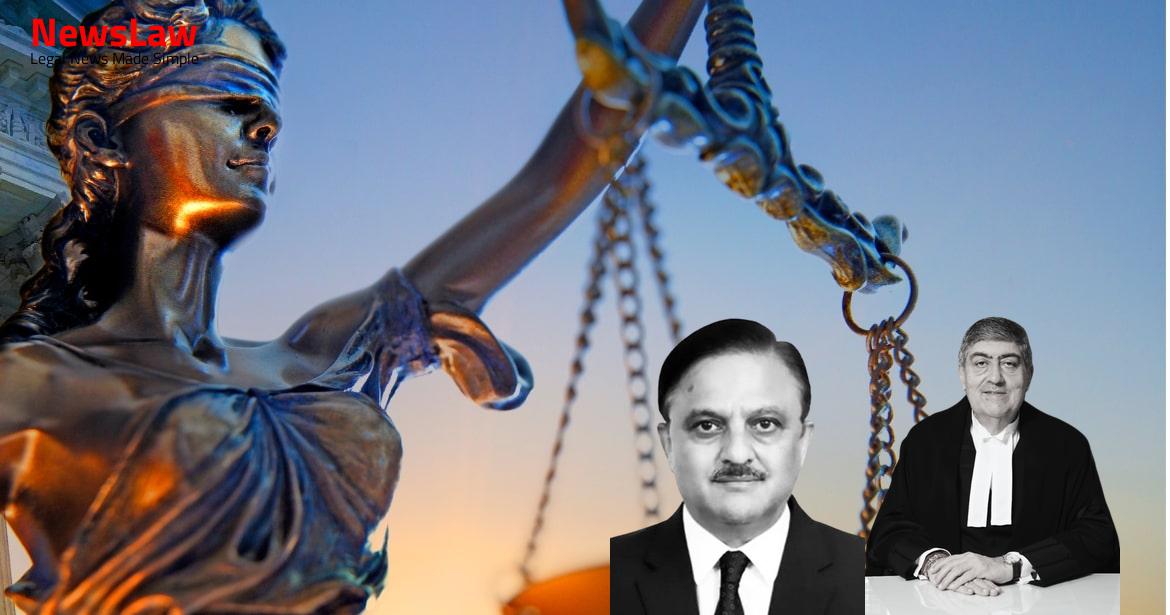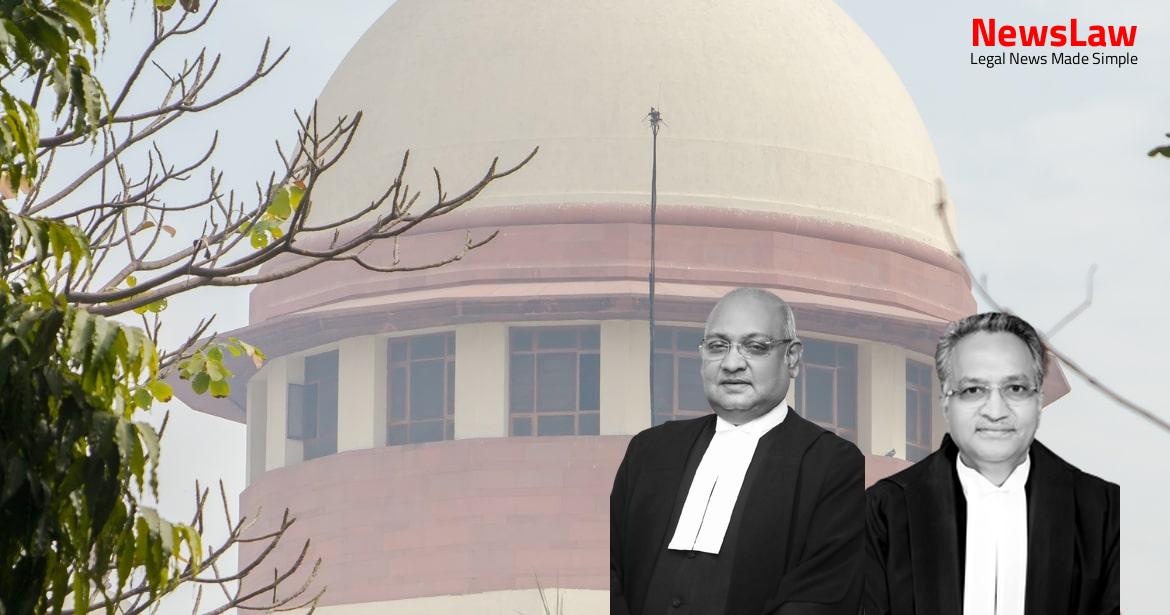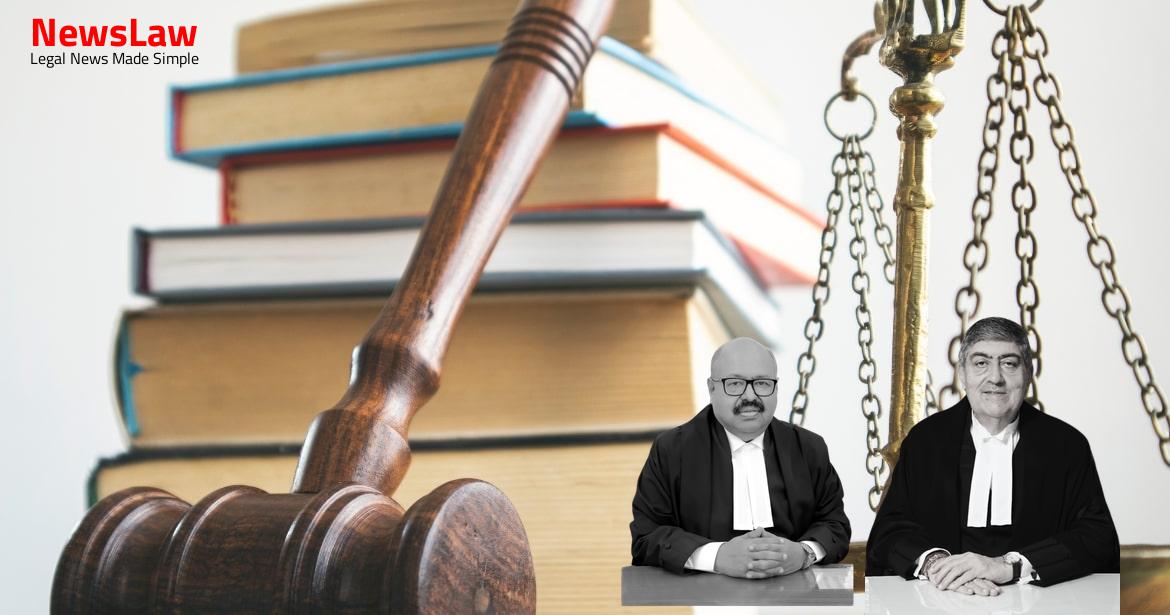In a significant ruling by the Supreme Court of India, the protection of public servants under Section 197 of the CrPC was discussed. The case involved the appellants 2 to 4 who were members of the Central Civil Service – Class I and appointed to the Indian Telecommunication Service. The court clarified the need for government sanction for prosecution and the exclusion for officers of government companies or public undertakings. Stay tuned for more insights on this landmark judgement.
Facts
- Appellants 2 to 4 were initially appointed in Central Civil Services Class-1 before being sent on deputation to the appellant Corporation.
- A criminal complaint was filed against the appellants regarding the Private Security Guards (Regulation of Employment and Welfare) Scheme.
- Despite being sent on deputation to the appellant Corporation, sanction under Section 197, Cr.P.C. was deemed necessary before their prosecution.
- Appellants 3 and 4 opted for absorption into the appellant Corporation on 01.10.2000, ceasing to be government employees.
- The appellants challenged their prosecution on the grounds of lack of sanction under Section 197 of the Cr.P.C., which was rejected in the writ petition.
- The revision application against the order dated 07.06.2005 was dismissed by citing limitations and non-applicability of the Act to the appellants’ establishment.
- The issuance of process was challenged on the grounds of lacking sanction under Section 197, Cr.P.C., claiming appellants 2 to 4 as ‘public servants’.
- The High Court, referring to Mohd. Hadi Raja vs State of Bihar, clarified that officers of Government companies or public undertakings do not receive protection of sanction under Section 197, Cr.P.C., even if falling under ‘State’ definition in Article 12 of the Constitution.
Also Read: Land Dispute Resolution: Supreme Court Ruling on Specific Performance
Arguments
- Appellants nos.2 to 4 are considered public servants as they were carrying out public duties in line with the Central Government’s policy.
- They were members of the Central Civil Service – Class I and were appointed by the President of India to the Indian Telecommunication Service.
Also Read: Landmark Judgment: Setting Precedent for Contractual Compliance
Analysis
- The appeal raises a question of law regarding the protection under Section 197, Cr.P.C. for employees of public sector corporations claiming the status of a ‘public servant’.
- Section 197, Cr.P.C. provides protection to Judges, Magistrates, and public servants not removable from office without government sanction when accused of an offence during the discharge of official duty.
- The term ‘public servant’ is defined in Section 21 of the Indian Penal Code, including those in service or pay of the Government, local authorities, or corporations established by government Acts.
- The need for previous sanction for prosecution under Section 197, Cr.P.C. is emphasized in the context of the definition of ‘public servant’.
- Section 197, CrPC draws a line between public servants, requiring government sanction for prosecution of higher ranks only.
- Public servant holding multiple offices will have official acts relating to both offices.
- The decision in Mohd. Hadi Raja was not cited before the High Court.
- Protection under Section 197, CrPC may not be available due to unclear evidence on appellant no.2’s status.
- The appellant was employed by the Municipal Corporation as a Laboratory Officer, not paid by the Government.
- Sanction under Section 197, CrPC may not be a prerequisite for appellant no.2 as a ‘public servant’.
- Appellants 3 and 4 are not eligible for protection under Section 197, CrPC after ceasing to be employees of the Indian Telecommunication Service upon absorption into the Corporation.
- The High Court did not accept the Corporation’s submission regarding appellant status.
- The protection under Section 197 of the Code of Criminal Procedure does not apply to officers of government companies or public undertakings, even if they are considered ‘State’ within the meaning of Article 12 of the Constitution.
- In cases like Punjab State Warehousing Corporation vs Bhushan Chander, it was held that employees of fully government-owned corporations do not fall under the definition of ‘public servant’ and therefore are not entitled to protection under Section 197, Cr.P.C.
- The requirement of sanction under Section 197, Cr.P.C. does not apply to officers of government companies or public undertakings, as reiterated in different cases like Mohd. Hadi Raja vs State of Bihar and Chandan Kumar Basu vs State of Bihar.
- For the protection under Section 197, Cr.P.C. to apply, certain mandatory requirements need to be fulfilled, including the accused being a public servant, the public servant being removable by the Central or State Government, and the alleged offense being committed during the discharge of official duties.
- The court emphasized that the deep and pervasive control of the Government over public sector corporations or government companies excludes the need for sanction under Section 197, Cr.P.C. for prosecuting their officers, even if they fall under the definition of ‘State’ in Article 12 of the Constitution.
- Appellant no.2’s status on deputation to the appellant Corporation at the relevant point of time is considered
- Absence of necessary evidence regarding appellant no.2’s status in the appellant Corporation throughout the litigation is noted
- The question of appellant no.2’s status is left open for consideration in the trial after necessary evidence is available
Decision
- The appeal has been dismissed.
- The parties have been directed to cooperate for an early disposal of the case.
- The trial, which has been stalled since 2003, has been facing delays due to the appellants filing repeated applications.
- It has been concluded that the trial needs to be expedited and concluded promptly.
- The Magistrate has been instructed to ensure the trial is concluded within one year.
Case Title: B.S.N.L. Vs. PRAMOD V. SAWANT
Case Number: Crl.A. No.-000503-000503 / 2010



